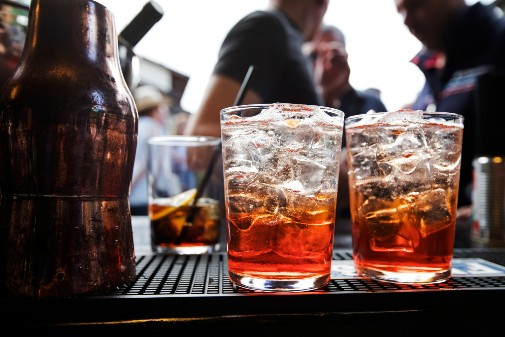More evidence needed to understand consumer behaviour around no and low-alcoholic drinks
Posted on 19 March 2024
 The NOLO industry is currently worth £255 million in the UK
The NOLO industry is currently worth £255 million in the UK
There has been widespread support for NOLO drinks, including by a number of government bodies, based on the assumption that if produced for supermarkets and pubs and promoted to consumers, that they could help to replace some alcoholic drinks, and help improve public health and safety.
Research at the University of York, however, has shown there is very little evidence to support this view, and that more data is needed on consumer behaviour world-wide to create a strategy for the marketing of NOLO drinks before it can be claimed as a replacement to alcoholic drinks.
Global North
Reviewing the latest research into NOLO consumption, they found that 97% of the data collected and published in English language academic sources is based on the Global North and very little is known about consumption in the Global South.
The researchers highlight that if NOLO drinks are being pushed by health promoters and governments as a healthier option, then it is important to understand whether they are being consumed instead of alcohol or in addition to alcohol.
They found that research broadly addresses biological, psychological, and environmental factors influencing NOLO consumption, but there is very little consistency in the data, meaning that no firm conclusions can be made across any of these areas.
Booming industry
Professor Victoria Wells, from the University of York’s School of Business and Society, said: “Although the NOLO industry is booming in terms of sales we know very little about how, when, and in what ways it is chosen by and used by consumers. NOLO has been promoted as being a healthy alternative, and governments hope that consumers will use it to replace alcoholic drinks, but there is no research that currently supports this.”
The NOLO industry is currently worth £255 million in the UK and its value is expected to reach £432 million by 2027. The industry often explains this growth as a result of young people wanting to lead healthier lifestyles, particularly through experiences of the pandemic.
Taste test
Although NOLO has gained more attention in recent years, the researchers point out that it is far from being a new phenomenon, and variations of the product have existed since the medieval period. It saw a resurgence in the 1980s and 1990s, but taste has often been a barrier to its success.
The team also found that some research focuses on biology as a factor, such as genetics potentially influencing preferences for beer flavours. Gender was a consideration with women tending to be more health conscious and willing to try alternatives to alcohol for example, but some research points to men being the main purchaser of NOLO.
Similarly, there is no agreement on age as a factor, with some saying young people are the target, 18 and over, and others pointing to slightly older and narrower target groups, such as pregnant women, and sports professionals.
Diet and mood
Dr Nadine Waehning, from the University of York’s School of Business and Society said: “Emotional response was also a key area in the research, with NOLO being a consideration for those wanting to lose weight, improve diet, and enhance their mood, but at the same time marketers point out that positioning them as ‘diet drinks’ does not work.
“We see the same disagreements on environmental factors, with some arguing this should be a staple in the hospitality industry, but other research suggesting that people are most likely to consume the drinks at home or small social gatherings, like a birthday party.”
Formal strategy
Culture was also an area that was largely missing from the research, with some data on US consumers suggesting sweeter drinks were preferred, but very little on cultures and religions that frown upon alcohol consumption in certain circumstances or don’t allow alcohol assumption at all.
Professor Wells said: “If we want to really push NOLO as a product that could help reduce the number of serious diseases, such as alcoholism and obesity, and more generally improve healthy drinking habits, then we need the data that proves this, and a more formal strategy on how these drinks are marketed to consumers to make sure they are enjoyed in the right ways.”
The research is published in the journal, Food Quality and Preference.
Explore more news

Sodium channels in breast cancer cells a promising target for future treatments, study reveals
Thursday 25 July 2024

Researchers to measure the impact of hot weather on UK classrooms
Wednesday 24 July 2024

Hunter-gatherers kept an 'orderly home' in the earliest known British dwelling, study shows
Tuesday 23 July 2024

Study uses Game of Thrones to advance understanding of face blindness
Tuesday 23 July 2024

York academic contributes to new report on men’s health which reveals disparities between most and least deprived areas in the UK
Wednesday 17 July 2024
